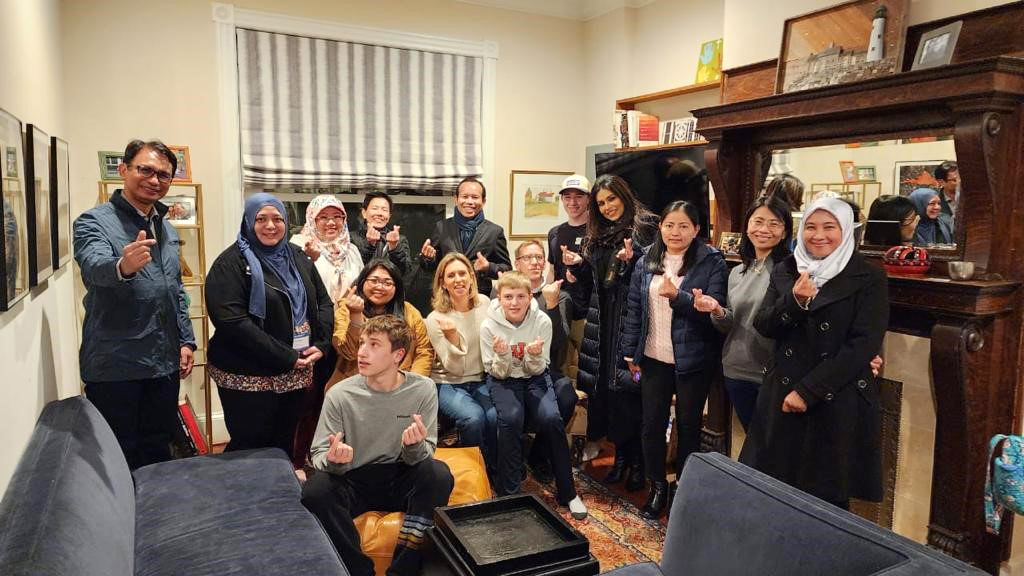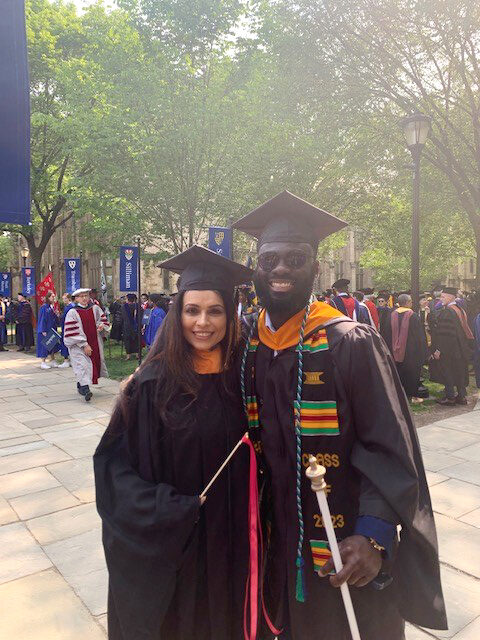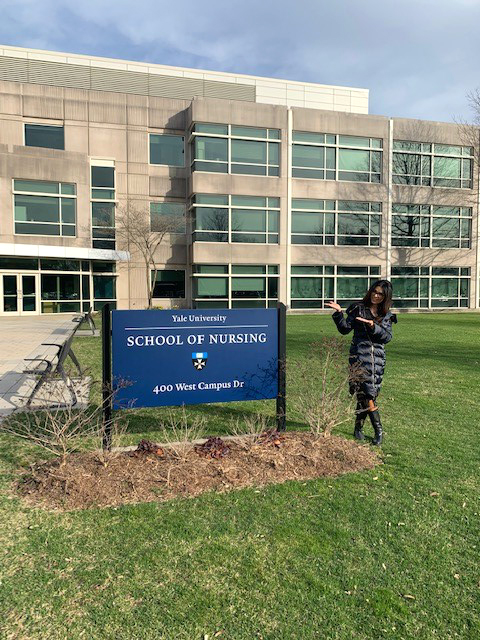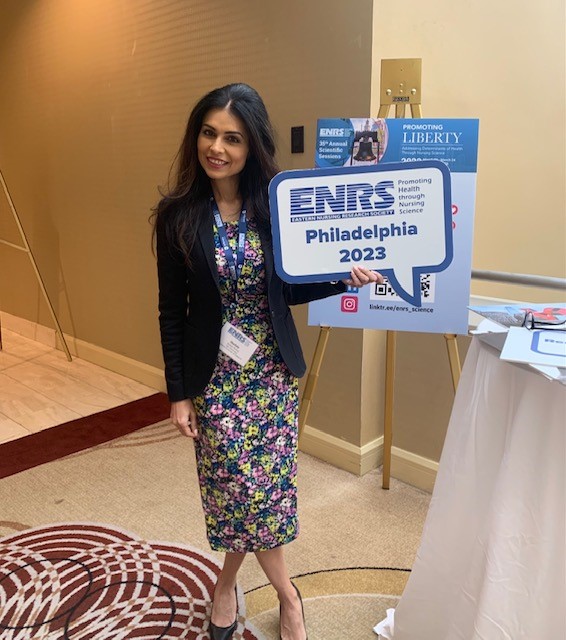
Associate Professor Shefaly Shorey writes about her learning journey as a Fulbright US-ASEAN Visiting Scholar.
It all started with an email. The programme’s theme on how we can enhance support for women in the ASEAN region really resonated with me—it aligns strongly with my research interest in women and child health. But more importantly, it’s a topic that has always been close to my heart.
Little did I know then that would mark the start of a once-in-a-lifetime experience for me. The almost year-long journey, which started with my research proposal submission, not only unfolded into many valuable lessons and lifelong friendships along the way but also seeded countless wonderful opportunities for future collaborations. With my return to Singapore and the resumption of my teaching and research schedule at NUS Nursing, I share my reflections as well as new perspectives gained from going on this programme—in the hope that they will inspire and guide others who are keen to attend the programme in the future.
Applying for the Programme
As a female academic on the tenure track, I acutely felt my tenure clock going in parallel with my biological clock—and I was curious to find out if other women in STEM have a different journey. Hence, for my application, I put in a small research proposal to understand the needs of women working in STEM.
My proposal was one of six shortlisted—and I was invited to attend a 40-minute interview during which the panelist asked questions ranging from my research topic to my plans for carrying it out to my views on diversity, inclusion, and equity.
The good news of my selection came one month later. However, it didn’t end there. I had to find someone who could host me in the US, from institutions such as Yale, Stanford, etc.
I went with Yale School of Nursing eventually. My host, Professor LaRon E. Nelson, was a collaborator whom I had the pleasure of meeting a few years ago.
Getting Ready for the US
I had been selected for the Fulbright US-ASEAN Visiting Scholar Program in 2022. But it was a busy period (with semestral teaching) at NUS Nursing. In the end, we decided to request a deferment. That was how I ended up only going for the programme this year.
Even then, having to be away for six months proved to be too disruptive to my work here. So, with the help of my Head, we worked out an arrangement where I would be in the US for just three months before continuing my Fulbright project remotely in Singapore.
Finally, we were all set to go—at least I thought I was. Over the years, I have attended numerous overseas conferences—I was at Stanford, US, as a Biodesign Faculty Fellow for a one-week programme as recently as January 2023. In addition, the research topic was a familiar one—it’s an extension of the work that I was already doing in Singapore. But this was still going to be the longest I would be away from my family in the past decade.

Soaking in the US Experience
I went into the programme with an open mind and no preconceived notions—and ended up learning so much. Not only did I experience the US culture and work ethics first-hand, I also saw how Yale School of Nursing run their programmes and my host, Prof LaRon, juggles between research and professional practice.
Of course, learning came with its fair share of challenges. My very first hurdle came from getting ethics approval from the US Institutional Review Board for my research. Because my research focuses primarily on women, the Board was concerned that it was not gender inclusive. I ended up providing a whole rationale before it was finally approved two months later.
Although I only got the green light to proceed with the research in the last month, the first two months were a whirlwind of activities. Aside from the many luncheons with new friends and collaborators, I got to share about Singapore’s multiracial culture, food, religions, etc., every other week, as part of the programme. We also did some voluntary work such as teaching children from low socioeconomic backgrounds and providing maternity support to women who had given birth.
Additionally, I taught two PhD classes at Yale on how to conduct randomised controlled trials and longitudinal studies and presented about my research work at a conference. An interesting observation about Nursing at Yale is that only postgraduate programmes—Master’s, Doctorate, Professional Practice, and PhD is available. That aside, I found many similarities between Yale School of Nursing and NUS Nursing. Class size is one of them. A hybrid teaching format is another.
The professional practice in the US was another eye-opener for me. Nurses run their clinics. For example, my host is a researcher specialising in HIV, a mental health expert, and a Nurse clinician all at once. It was an experience for me to sit in his clinic and observe him attending to patients.
Then I also met another Nurse—my host’s collaborator—who runs a wet lab in New York. That was inspiring. While it is not uncommon for us to conduct dry lab research, it’s rare to see Nurses doing research on biomarkers or delving into omics research. I certainly look forward to the day when Nurses in this part of the world can do the same.

Homesickness Set in
Reality set in—with the ethics approval of my research—in the third month. I suddenly had the realisation that I needed to re-centre myself and find my purpose for being in the US.
For two months, I was busy meeting people and fulfilling aspects of the programme obligations. At the same time, I was teaching my NUS Nursing evening classes via Zoom and running my research teams back here. Needless to say, it was hectic having to balance everything in the US with my responsibilities back at NUS Nursing. Add to that the time difference and other prior commitments, contact with my family was limited and irregular.
It could be fatigue, the weather—or being away from home and my loved ones. I began to miss my family, home-cooked food, and how safe Singapore is—I was homesick. Fortunately, taking time out to reflect and read spiritual books helped to reinvigorate and strengthen my resolve to press on.
Looking back, if I were given a chance to do this all over again, I would probably cut back on my teaching and research projects to better immerse in the experience as well as ensure that I am not compromising my attention for both sides. Also, I would make sure that my family could at least come for a one-time visit.

Coming Home
I have been home for over five months now—and largely returned to the same work momentum as before. But while the Fulbright experience is behind me now, it has left an indelible mark on my personal beliefs, work ethos, and worldview, which I continue to embrace and apply to my work at NUS Nursing and my personal life.
I used to think that it was best for people to keep a certain discipline by observing certain work hours. But I have since come to realise that work is most effectively carried out when the person is feeling happy and engages in purposeful work based on their individual strengths. Hence, I started to practise this with my research team. Rather than pushing them to work stipulated hours, I make sure that they are assigned work based on their individual strengths so that they remain happy and motivated. Doing this I have seen them naturally meet or even exceed the set targets. I have learned to respect and accept diverse work ethics, meet people where they are, and co-design the work rather than expect them to meet my expectations (where possible). Going by the number of “thank you” emails and text messages I’ve received in recent times, I must be doing something right.
Similarly, people who have worked with me, all know that I am very disciplined and deadline-driven person. I am always chasing after time to get things done on or ahead of schedule. However, after staying for three months in a time zone that is 12 hours behind, I have learned to work expeditiously without getting too hung up on time—because no matter how fast I worked in the US, I would still be 12 hours “late”.
There are also the new friends who have made this journey enjoyable and enriching. I keep in touch with many of them—sending well-wishes during festive periods or congratulating them on their achievements. In some cases, the friendship has also translated into collaboration opportunities. One example is a research project on traumatic childbirth in Africa, which I will be collaborating with Prof LaRon on.
My Fulbright journey may have ended, but it continues to live on in more ways than one. I am excited about the many opportunities and possibilities it has opened—for me and NUS Nursing.

Shefaly Shorey
Associate Professor, NUS Nursing
Fulbright US-ASEAN Visiting Scholar (March 2023 – June 2023)


